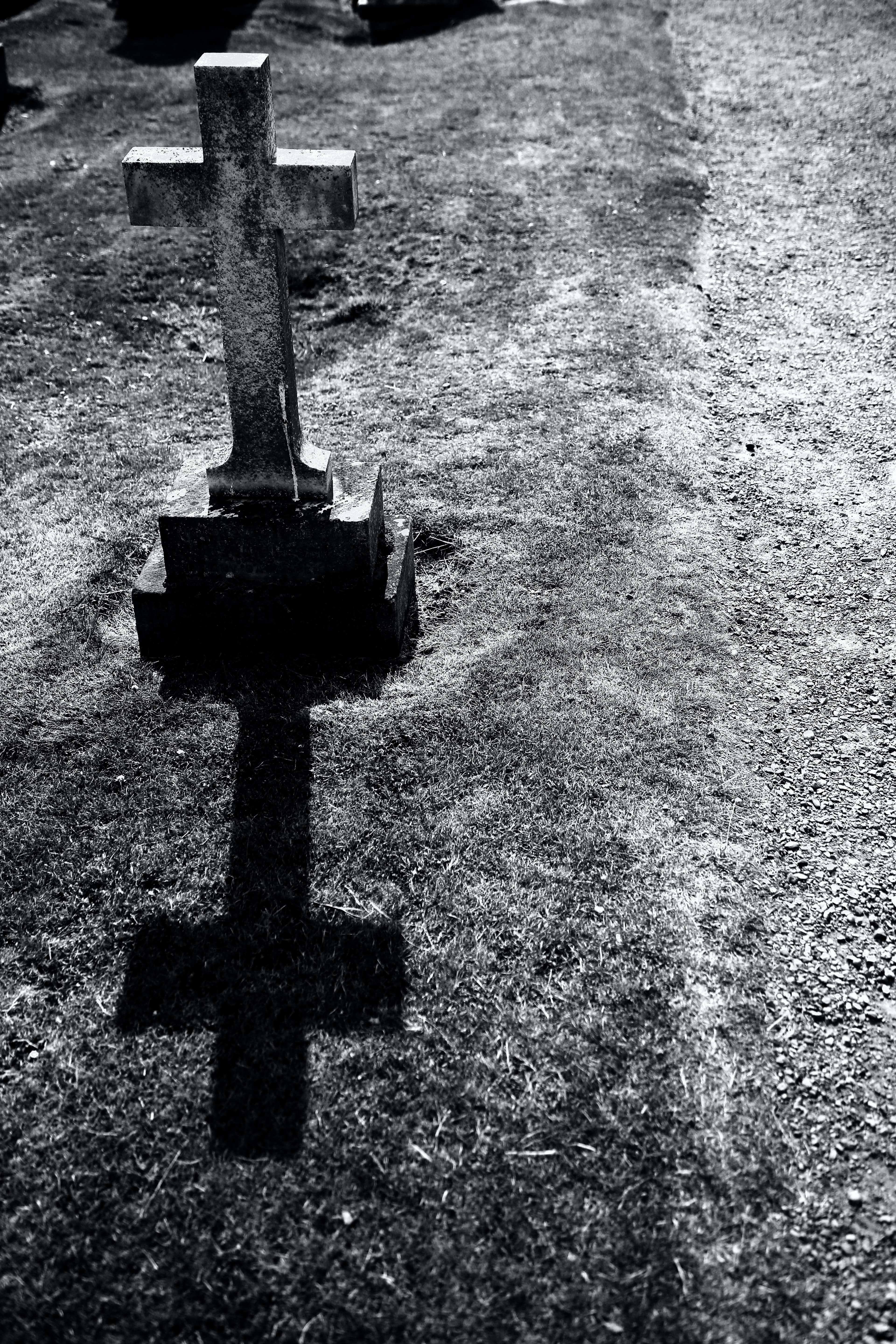“At the sight of the crowds, his heart was moved with pity for them because they were troubled and abandoned, like sheep without a shepherd” (Matthew 9:36).
Every Gospel passage has so many points to reflect upon. This is just one small verse from the larger passage, yet it struck me as poignant since today is the Feast of St. Benedict.
Not many of us today have first hand experience with sheep outside of a petting zoo. In a petting zoo, sheep are comfortable. They know they have regular access to food, shearing, sure footing and constant care. These sheep are not “troubled” and certainly aren’t “abandoned.” Sheep in the wild are in a different situation.
“Sheep are among the most stupid of animals. They are utterly defenseless. If an attacker comes toward them, all they can do is run away. They fall down and can’t get back up. They’ll wander in circles, grazing on brown, inferior pasture until they are led to a better place. Left to their own devices, they are helpless and hopeless” (Beholding Your King – Walking With Purpose Bible Study, pg 41).
This is what Jesus saw in the crowds. The people were wandering, floundering, unable to discern the direction which would bring them happiness and rest. They were injuring themselves with no way to be healed, no one to help them when they fell (this is true, if a sheep falls down it not only cannot right itself, it will actually be in danger of death if not turned swiftly enough.). They desperately needed a shepherd, a Good Shepherd.
Fast forward to the late 400’s and we find Christendom in dire need of shepherds. St. Benedict was born in and around the time that Rome formally fell to the invading barbarian kingdoms. The world was being turned over and over again. Rome had become a place of decadence and excess, the newcomers were pagans, and things were generally in disarray. The people needed a new shepherd to bring them back to Christ.
St. Benedict took inspiration from the early Church Fathers to revive monasticism, something that was dying. He saw how this way of life and the educational model it could provide offered much needed direction for the current and future generations. Benedict set his sights high, founding multiple monasteries before the famous one at Montecassino where he wrote “The Rule”, which is still foundational for monastic life today. Benedict insisted on a balance between evangelical activities and prayer. Sounds a bit like a shepherd, who leads his sheep to specific places at specific times so they always have good food, clean water, and safety from predators.
We are like sheep. Thank God in His goodness He provided Jesus, our Good Shepherd, and all the shepherds who follow in His footsteps to lead us to heaven.
“A la vista de la multitud, su corazón se conmovió de compasión por ellos, porque estaban atribulados y abandonados como ovejas sin pastor” (Mateo 9,36).
Cada pasaje del Evangelio tiene tantos puntos para reflexionar. Este es solo un pequeño verso del pasaje más grande, pero me pareció conmovedor ya que hoy es la Fiesta de San Benito.
No muchos de nosotros hoy en día tenemos experiencia de primera mano con ovejas fuera de un zoológico de mascotas. En un zoológico interactivo, las ovejas se sienten cómodas. Saben que tienen acceso regular a alimentos y esquila, que pueden pisar seguramente y tienen cuidado constante. Estas ovejas no están “ansiosas” y ciertamente no están “abandonadas”. Las ovejas en libertad se encuentran en una situación diferente.
“Las ovejas están entre los animales más estúpidos. Están completamente indefensos. Si un atacante se acerca a ellos, todo lo que pueden hacer es huir. Se caen y no pueden volver a levantarse. Caminan en círculos, alimentándose en pastos marrones e inferiores hasta que los lleven a un lugar mejor. Abandonados a sus propios recursos, están indefensos y sin esperanza” (Beholding Your King – Walking With Purpose Bible Study, pg 41).
Esto es lo que Jesús vio en la multitud. La gente vagaba, se tambaleaba, incapaz de discernir la dirección que les traería felicidad y descanso. Se estaban lastimando a sí mismos sin forma de curarse, sin nadie que los ayudara cuando cayeron (esto es cierto, si una oveja se cae, no puede levantarse por sí misma, sino que estará en peligro de muerte si no lo ayudan rápidamente). Necesitaban desesperadamente a un pastor, un Buen Pastor.
Avance rápido hasta finales de los años 400 y encontramos que la cristiandad tiene una gran necesidad de pastores. San Benito nació alrededor de la época en que Roma cayó formalmente ante los reinos bárbaros invasores. El mundo estaba dando vueltas una y otra vez. Roma se había convertido en un lugar de decadencia y exceso, los recién llegados eran paganos y, en general, las cosas estaban desordenadas. El pueblo necesitaba un nuevo pastor que los trajera de regreso a Cristo.
Los primeros Padres de la Iglesia inspiraron a San Benito a renovar el monacato, algo que estaba muriendo. Vio cómo esta forma de vida y el modelo educativo que podía proporcionar ofrecían una dirección muy necesaria para las generaciones actuales y futuras. Benedicto fijó la mirada en lo alto, fundando múltiples monasterios antes del famoso en Montecassino, donde escribió “La Regla”, que sigue siendo fundamental para la vida monástica hasta el día de hoy. Benedicto insistió en un equilibrio entre las actividades evangélicas y la oración. Suena un poco como un pastor, que lleva a sus ovejas a lugares específicos en momentos específicos para que siempre tengan buena comida, agua limpia y seguridad de los depredadores.
Somos como ovejas. Gracias a Dios en su bondad nos regaló a Jesús, nuestro Buen Pastor, y a todos los pastores que siguen sus pasos para llevarnos al cielo.
 Kate Taliaferro is an Air Force wife and mother. She is blessed to be able to homeschool, bake bread and fold endless piles of laundry. When not planning a school day, writing a blog post or cooking pasta, Kate can be found curled up with a book or working with some kind of fiber craft. Kate blogs at DailyGraces.net.
Kate Taliaferro is an Air Force wife and mother. She is blessed to be able to homeschool, bake bread and fold endless piles of laundry. When not planning a school day, writing a blog post or cooking pasta, Kate can be found curled up with a book or working with some kind of fiber craft. Kate blogs at DailyGraces.net.
Feature Image Credit: Quangpraha, pixabay.com/photos/sheep-shepherd-farmers-ninh-thuan-3023520/


 Sr. Mary Martha Moss, FSP has had the grace of serving the Lord for over 40 years as a Daughter of St. Paul. Joyfully engaged in the community’s media ministry, she has authored 3 children’s books, presented on various topics for adult faith formation, enjoyed running Online Book Studies, served as a Pauline Book & Media Center manager and continues singing the alto part with the Daughters of St. Paul Concert Choir.
Sr. Mary Martha Moss, FSP has had the grace of serving the Lord for over 40 years as a Daughter of St. Paul. Joyfully engaged in the community’s media ministry, she has authored 3 children’s books, presented on various topics for adult faith formation, enjoyed running Online Book Studies, served as a Pauline Book & Media Center manager and continues singing the alto part with the Daughters of St. Paul Concert Choir.
 Elizabeth Tomlin is the author of Joyful Momentum: Building and Sustaining Vibrant Women’s Groups and contributing author to the Ave Prayer Book for Catholic Mothers. She is General Counsel for the Archdiocese for the Military Services, USA. Elizabeth is an Army wife and mother of three and currently lives in the DC area. She blogs at
Elizabeth Tomlin is the author of Joyful Momentum: Building and Sustaining Vibrant Women’s Groups and contributing author to the Ave Prayer Book for Catholic Mothers. She is General Counsel for the Archdiocese for the Military Services, USA. Elizabeth is an Army wife and mother of three and currently lives in the DC area. She blogs at 
 Tami Urcia grew up in Western Michigan, a middle child in a large Catholic family. She spent early young adulthood as a missionary in Mexico, studying theology and philosophy, then worked and traveled extensively before finishing her Bachelor’s Degree in Western Kentucky. She loves tackling projects, finding fun ways to keep her little ones occupied, quiet conversation with the hubby and finding unique ways to love. She works full time, is a guest blogger on
Tami Urcia grew up in Western Michigan, a middle child in a large Catholic family. She spent early young adulthood as a missionary in Mexico, studying theology and philosophy, then worked and traveled extensively before finishing her Bachelor’s Degree in Western Kentucky. She loves tackling projects, finding fun ways to keep her little ones occupied, quiet conversation with the hubby and finding unique ways to love. She works full time, is a guest blogger on 
 David Dashiell is a freelance author and editor in Nashville, Tennessee. He has a master’s degree in theology from Franciscan University, and is the editor of the anthology
David Dashiell is a freelance author and editor in Nashville, Tennessee. He has a master’s degree in theology from Franciscan University, and is the editor of the anthology 


 Merridith Frediani loves words and is delighted by good sentences. She also loves Lake Michigan, dahlias, the first sip of hot coffee in the morning, millennials, and playing Sheepshead with her husband and three kids. She writes for Catholic Mom, Diocesan.com, and her local Catholic Herald. Her first book Draw Close to Jesus: A Woman’s Guide to Adoration is available at Our Sunday Visitor and Amazon. You can learn more at
Merridith Frediani loves words and is delighted by good sentences. She also loves Lake Michigan, dahlias, the first sip of hot coffee in the morning, millennials, and playing Sheepshead with her husband and three kids. She writes for Catholic Mom, Diocesan.com, and her local Catholic Herald. Her first book Draw Close to Jesus: A Woman’s Guide to Adoration is available at Our Sunday Visitor and Amazon. You can learn more at 
 Dr. Alexis Dallara-Marsh is a board-certified neurologist who practices in Bergen County, NJ. She is a wife to her best friend, Akeem, and a mother of two little ones on Earth and two others in heaven above.
Dr. Alexis Dallara-Marsh is a board-certified neurologist who practices in Bergen County, NJ. She is a wife to her best friend, Akeem, and a mother of two little ones on Earth and two others in heaven above.
 Sheryl is happy to be the number 1 cheerleader and supporter for her husband, Tom who is a candidate for the Permanent Diaconate in the Diocese of Kalamazoo. They are so grateful for the opportunity to grow together in this process. Sheryl’s day job is serving her community as the principal for St. Therese Catholic School in Wayland, Michigan. Since every time she thinks she gets life all figured out, she realizes just how far she has to go, St. Rita of Cascia is her go-to Saint for intercession and help. Home includes Carlyn, a very, very goofy Golden Retriever and Lucy, our not-so-little rescue puppy.
Sheryl is happy to be the number 1 cheerleader and supporter for her husband, Tom who is a candidate for the Permanent Diaconate in the Diocese of Kalamazoo. They are so grateful for the opportunity to grow together in this process. Sheryl’s day job is serving her community as the principal for St. Therese Catholic School in Wayland, Michigan. Since every time she thinks she gets life all figured out, she realizes just how far she has to go, St. Rita of Cascia is her go-to Saint for intercession and help. Home includes Carlyn, a very, very goofy Golden Retriever and Lucy, our not-so-little rescue puppy. 

